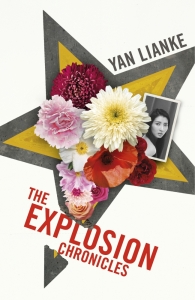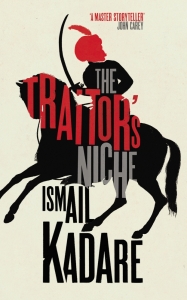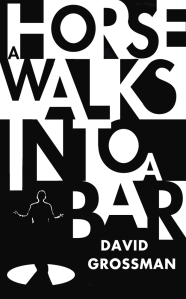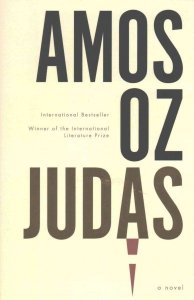 The shadow panel members have been busy reading the titles longlisted for the Man Booker International Prize. Here are my thoughts about the first four books I have read since the announcement last month:
The shadow panel members have been busy reading the titles longlisted for the Man Booker International Prize. Here are my thoughts about the first four books I have read since the announcement last month:
Yan Lianke’s novel The Four Books was shortlisted for the Man Booker International Prize last year and was one of the most interesting new discoveries I made last year. Translated from the Chinese by Carlos Rojas, The Explosion Chronicles follows three families – the Kongs, the Zhus and the Chens – who compete to turn their small village into a super metropolis. Lianke’s latest novel to be translated into English is another absurdist satire which criticises corruption, capitalist excess and China’s rapid economic growth with impressive detail and the way in which the story is presented as a history of the town as a sort of miniature account of what has happened to the country in general is done very effectively. However, I don’t think ‘The Explosion Chronicles’ has the same raw power as ‘The Four Books’ and I didn’t feel particularly invested in the characters – perhaps this is because it is much broader in scope and also because I am not very familiar with the history that Lianke is satirising here. I would still recommend ‘The Explosion Chronicles’ to those who are interested in modern Chinese history and/or enjoy surreal fiction. At the moment, the general consensus among the shadow panel members who have read it so far suggests that it is unlikely to appear in our top six titles but Lianke could make it a second year running for the official shortlist.
 Translated from the Albanian by John Hodgson, The Traitor’s Niche was originally published in 1978 by Ismail Kadare, the inaugural winner of the Man Booker International Prize in 2005 in its former configuration when it was awarded to an author for their general body of work in translation rather than a single novel. Set in the early nineteenth century when Albania was seeking to become independent of the Ottoman Empire, commander-in-chief Hurshid Pasha has been tasked with killing the elderly pasha of Albania, Ali Tepelena, and returning his head to the Traitor’s Niche, located in the main square of Constantinople, where the severed heads of enemies of the sultan are displayed to the public. The story focuses on two characters: Abdulla, a soldier who guards the niche and Tundj Hata, the courier who transports the severed heads from the provinces to the capital.
Translated from the Albanian by John Hodgson, The Traitor’s Niche was originally published in 1978 by Ismail Kadare, the inaugural winner of the Man Booker International Prize in 2005 in its former configuration when it was awarded to an author for their general body of work in translation rather than a single novel. Set in the early nineteenth century when Albania was seeking to become independent of the Ottoman Empire, commander-in-chief Hurshid Pasha has been tasked with killing the elderly pasha of Albania, Ali Tepelena, and returning his head to the Traitor’s Niche, located in the main square of Constantinople, where the severed heads of enemies of the sultan are displayed to the public. The story focuses on two characters: Abdulla, a soldier who guards the niche and Tundj Hata, the courier who transports the severed heads from the provinces to the capital.
There are clear parallels between Albania’s tumultuous history and the context of the totalitarian dictatorship ruling the country at the time Kadare wrote the novel. The prose is beautifully written and translated and the opening section is particularly effective in describing the grotesque and disconcerting sight of the niche. Although some of the time shifts in the narrative are quite vague, I thought the way the book focused on more peripheral characters was very cleverly done. ‘The Traitor’s Niche’ isn’t something I probably would have picked up if it hadn’t been on the longlist but it is a deftly written novel for those who can stomach the gruesome subject matter.
 A Horse Walks Into A Bar by David Grossman is one of the longlisted titles I was most unsure about but it has been one of the most surprising to read so far – and ultimately in a good way, I’m pleased to say. Translated from the Hebrew by Jessica Cohen, it is set in a comedy club in the small Israeli town of Netanya where a stand-up comedian Dovelah Greenstein, is delivering his routine. In the audience is an old friend from childhood, Avishai Lazar, a retired judge who witnessed many of the humiliations Dovelah now recounts in his monologue, focusing on one particular week spent at a youth military camp.
A Horse Walks Into A Bar by David Grossman is one of the longlisted titles I was most unsure about but it has been one of the most surprising to read so far – and ultimately in a good way, I’m pleased to say. Translated from the Hebrew by Jessica Cohen, it is set in a comedy club in the small Israeli town of Netanya where a stand-up comedian Dovelah Greenstein, is delivering his routine. In the audience is an old friend from childhood, Avishai Lazar, a retired judge who witnessed many of the humiliations Dovelah now recounts in his monologue, focusing on one particular week spent at a youth military camp.
‘A Horse Walks Into a Bar’ is a fairly short novel effectively told in real time during Dovaleh’s two hour set. The tone takes some getting used to and may prove to be too jarring for some readers but I found it to be very compelling. Dovaleh’s routine is raw and confronting as his inappropriate and offensive jokes gradually reveal more about his past. It feels as though Grossman is walking a very thin tightrope here – as Dovaleh increasingly alienates his audience, Grossman also risks alienating the reader with the character’s intense monologue, and for that reason ‘A Horse Walks Into a Bar’ is certainly the most daring of the longlisted books I have read so far. I have heard that ‘A Horse Walks Into a Bar’ is quite a big departure from Grossman’s typical work and I can see this one generating some mixed responses from other readers, but I thought it was highly original and very well executed overall.
 Finally, Judas by Amos Oz is another longlisted title translated from Hebrew, this time by Nicholas de Lange. Set in Jerusalem in 1959, Shmuel Ash is a postgraduate student and socialist in his mid-twenties completing a thesis about Judas of Iscariot. He has taken a part-time job as a companion to an elderly invalid called Gershom Wald and quickly falls for Gershom’s daughter-in-law Atalia, a widow 20 years his senior whose father favoured Jews and Arabs living alongside each other as equals. As Shmuel discovers more about the family’s past, he begins to rethink his perspective of Judas as a traitor.
Finally, Judas by Amos Oz is another longlisted title translated from Hebrew, this time by Nicholas de Lange. Set in Jerusalem in 1959, Shmuel Ash is a postgraduate student and socialist in his mid-twenties completing a thesis about Judas of Iscariot. He has taken a part-time job as a companion to an elderly invalid called Gershom Wald and quickly falls for Gershom’s daughter-in-law Atalia, a widow 20 years his senior whose father favoured Jews and Arabs living alongside each other as equals. As Shmuel discovers more about the family’s past, he begins to rethink his perspective of Judas as a traitor.
I read ‘Judas’ straight after finishing ‘A Horse Walks Into A Bar’ which is pretty much the polar opposite in tone and consequently, I found it to be extremely dry in comparison. Despite being an exploration of the nature of betrayal, loyalty and whether or not traitors are actually bad people, ‘Judas’ is less driven by character and much more by meandering theological and historical debate and I think it could have worked better as a more tightly focused novella. Like Grossman, Oz is a highly prolific author and I’m not sure how ‘Judas’ compares to his other books but it seems that this one might not be the best place to start for someone new to his work, particularly if the religious and political context is relatively unfamiliar to the reader.
Overall, the books by Kadare and Grossman are my favourites out of these four whereas I found Lianke and Oz generally less accessible. As I am not even half way through the longlist yet, I’m still undecided if any of these novels particularly stand out for me yet as potential shortlist material, either as a personal preference or a contender likely to be favoured by others. On the other hand, some books may stick in my mind more than others as our deliberations continue over the next few weeks.
Lisa has helpfully collated a list of reviews by the shadow panel, so you can compare and contrast our thoughts about the longlisted titles. Have you read any of the books yet?





Pingback: Man Booker International Prize 2017 Longlist | Messenger's Booker (and more)
Pingback: 2017 Man Booker International Prize Longlist- Combined Shadow Jury reviews | ANZ LitLovers LitBlog
Thanks for the mention, Clare, I have added these four to the combined reviews page:)
Re The Explosion Chronicles: I read somewhere that Lianke is writing the same story in each of his novels, and there is an element of that, it’s true. However, I still find him very interesting, not least the way he manages to make his point while evading censorship. That is to say, that China is not just making economic progress, it is also making some progress in liberalising freedom to dissent. Many would say there’s not enough progress, but I have just been reading Tony Kevin’s book ‘Return to Russia’ and the slow and risky process of liberalisation after Stalin, and so perhaps it’s a similar situation in China. Slow and careful steps might be better than the risk of reimposed repression.
LikeLike
Thanks for collating our reviews! You are right to be mindful of the context in which Lianke is writing in. I remember that The Four Books was banned in China but not sure if The Explosion Chronicles got past the censors or not.
LikeLike
I’m not sure either, but at least he’s still writing and hasn’t been locked up. Which is progress of a sort…
LikeLiked by 1 person
a horse walks into a bar sounds absolutely brilliant.
LikeLike
It won’t appeal to everyone but I was impressed by it.
LikeLiked by 1 person
Glad to read that, will go look up these books myself now. Thanks for sharing your thoughts!
LikeLike
Great, hope you enjoy them!
LikeLiked by 1 person
I’m pretty much in agreement with your comments on the books I’ve read (not got to Judas yet). Still not sure of my own shortlist yet!
LikeLike
I’m about half way through the longlist now so I’m hoping I’ll have a better idea of my scoring by the end of next week!
LikeLike
I have yet to read A Horse Walks Into a Bar, still waiting for my library edition, so Judas did not come across as dry for me in comparison. In fact, I found it a fascinating look at an age old (unsolvable?) problem with the Arabs and Jews desire for Jerusalem in general, and what it means to be a traitor specifically.
The list this year has struck me as quite profound, as opposed to last year when I think I liked two in total. 🙂
LikeLike
Yes, as well as personal taste, I expect our reactions are going to be at least partly influenced by the order we read the books in. I don’t think Judas will be in my top 6 but it seems to be quite popular among the rest of the shadow panel. So far I have also found the longlist to be very thought-provoking in a way I didn’t experience last year.
LikeLike
Pingback: Judas by Amos Oz (translated by Nicholas de Lange, Man Booker Prize 2017 long list) | Dolce Bellezza
Pingback: 2017 Man Booker International Prize Shortlist | Messenger's Booker (and more)
Pingback: Man Booker International Reviews: Part 4 (and the official shortlist) | A Little Blog of Books
Pingback: Man Booker International Reviews: Part 4 (and the official shortlist) | A Little Blog of Books
Pingback: Man Booker International Prize Reviews: Part 5 (and the shadow panel shortlist) | A Little Blog of Books
Pingback: The Man Booker International Prize Winner 2017 | A Little Blog of Books
Pingback: Flights by Olga Tokarczuk | A Little Blog of Books